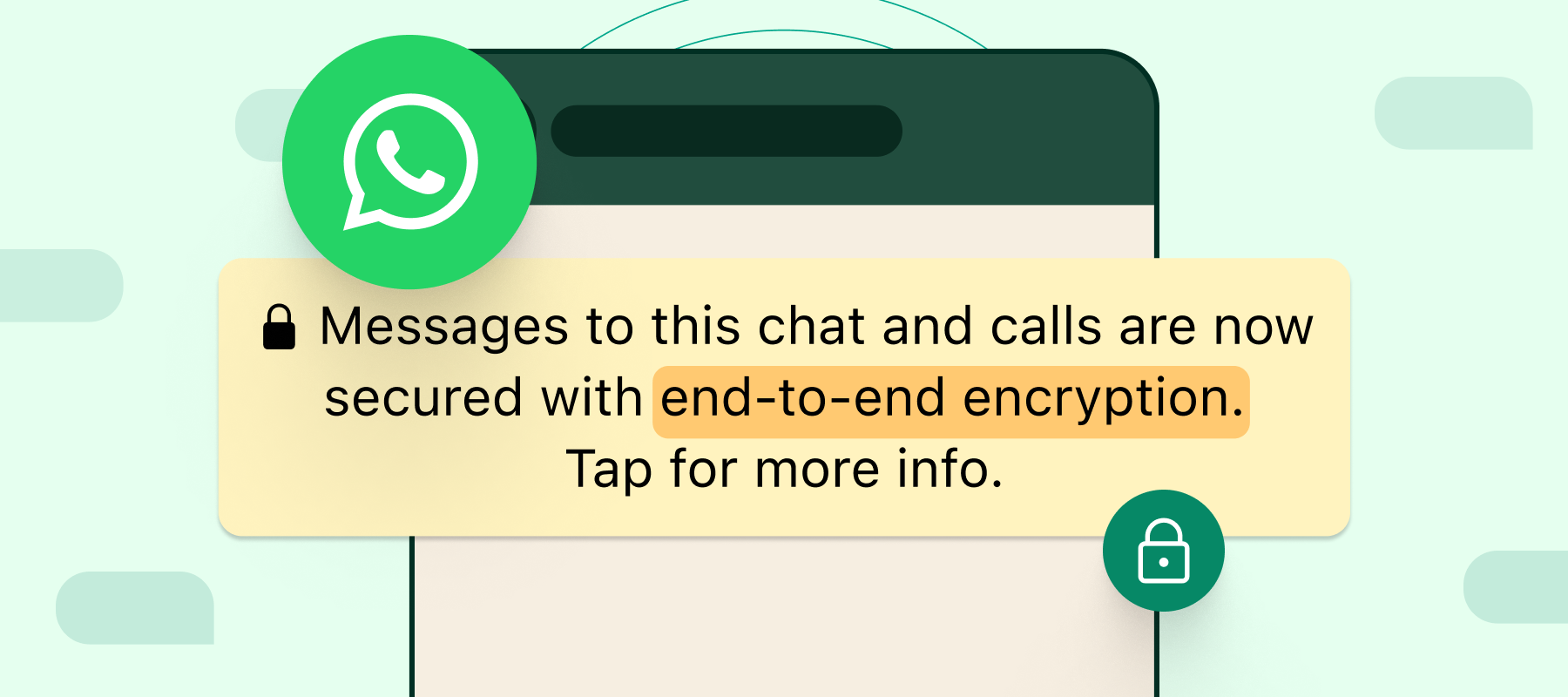Introduction
In an era where digital communication reigns supreme, safeguarding sensitive information is vital for businesses. WhatsApp, a leader in encrypted messaging, provides robust end-to-end encryption, ensuring that business communication remains secure and private. This guide explores how WhatsApp’s encryption works, its benefits, challenges, and implementation tips, helping businesses stay compliant and protect customer data.
How Does End-to-End Encryption Work?
End-to-end encryption on WhatsApp ensures that messages, calls, and shared media are encrypted from the sender’s device to the recipient’s device. This means that only the communicating parties can read or listen to the messages, while third parties—including WhatsApp itself—cannot access the content.
Here’s a simplified process of how it works:
1. Encryption Keys: Each user has unique public and private encryption keys. The public key is shared with the sender, while the private key remains securely stored on the recipient’s device.
2. Message Encryption: Before sending, the message is scrambled using the recipient’s public key.
3. Decryption on Delivery: Upon arrival, the recipient’s private key decrypts the message for secure viewing.
By employing advanced protocols, WhatsApp security ensures the integrity and confidentiality of business communication, providing peace of mind for both companies and customers.
Benefits for Businesses Using WhatsApp
1. Enhanced Customer Trust: With encrypted messaging, businesses can assure customers that their data is secure, boosting credibility and customer loyalty.
2. Compliance with Regulations: WhatsApp’s compliance with GDPR and other global standards supports businesses in meeting stringent data protection laws.
3. Protection Against Cyber Threats: Encryption shields businesses from potential hacks, eavesdropping, and data breaches.
4. Secure Business Communication: Sensitive discussions, such as contract negotiations or payment details, remain private.
5. Global Reach and Accessibility: With over 2 billion users, WhatsApp provides an encrypted communication platform that is familiar and easy to use, supporting seamless interaction across diverse demographics.
By leveraging WhatsApp Business security, organizations can create a secure, efficient, and trustworthy communication environment for their operations.
Limitations and Challenges of End-to-End Encryption
While end-to-end encryption offers robust security, it comes with certain limitations:
1. Limited Content Monitoring: Businesses cannot monitor encrypted messages for compliance or internal auditing purposes, posing challenges for regulatory oversight.
2. Backup Vulnerabilities: Chat backups on cloud storage are not encrypted by default, leaving them susceptible to unauthorized access.
3. Device Security Dependency: Encryption cannot protect data if a device is compromised through malware or theft.
4. Complex Implementation for Enterprises: Adapting encryption protocols to integrate with existing systems may require technical expertise and additional resources.
Understanding these challenges is crucial for businesses to adopt best practices and enhance their WhatsApp privacy strategy effectively.
Implementing Encryption for WhatsApp Business API
For businesses using the WhatsApp Business API, encryption is automatically enabled. However, to maximize security, consider the following steps:
1. Partner with Verified Providers: Choose authorized WhatsApp Business API providers to ensure compliance and reliable encrypted messaging services.
2. Enable Two-Step Verification: Strengthen account security by enabling two-step verification for all team members accessing the platform.
3. Educate Employees: Train staff on the importance of WhatsApp Business encryption and the need to avoid sharing sensitive information outside secure channels.
4. Audit Backup Settings: Disable unencrypted cloud backups or use third-party tools to encrypt stored data.
5. Regular Security Reviews: Conduct periodic audits of WhatsApp Business security practices to identify and address vulnerabilities.
Implementing these measures reinforces the integrity of business communication encryption while fostering a culture of data privacy.
Conclusion
End-to-end encryption on WhatsApp is a powerful tool for businesses seeking to secure their communication and protect customer data. By understanding its mechanisms, benefits, and limitations, companies can unlock the full potential of WhatsApp Business while maintaining compliance with data privacy regulations. Prioritizing WhatsApp Business security not only safeguards sensitive information but also enhances customer trust, paving the way for long-term success in the digital age.







